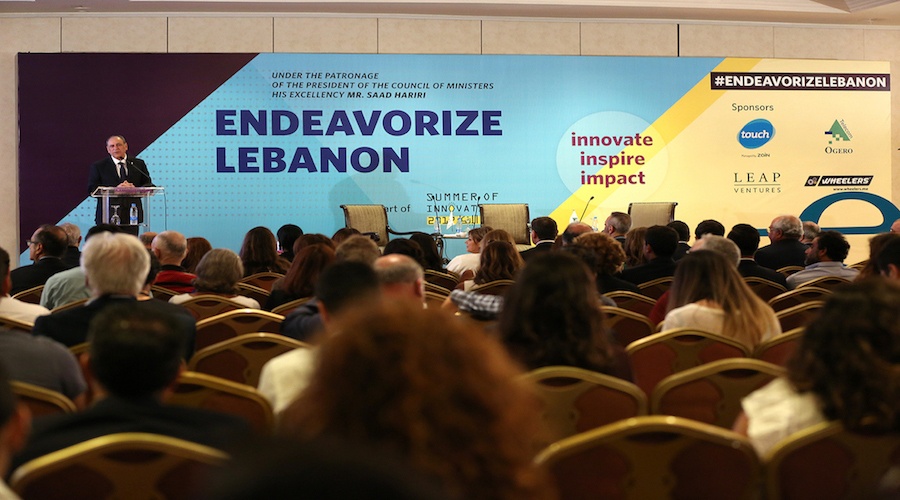When internet threatens Lebanon’s sustainability

In a private event held on July 24 at Phoenicia Hotel in Beirut, support organization Endeavor Lebanon gathered entrepreneurs, telecom, traditional companies, funds, and government officials to discuss the tech disruption in the private sector.
The event, Endeavorize Lebanon, launched with an opening speech by Tarek Sadi, the managing director of Endeavor Lebanon, who emphasized on the importance of collaboration between startups to have a sustainable disrupted ecosystem.
The event included several panels on the digital economy, the future role of the private sector, tech disruption, in addition to talks by cofounder of software company Murex, Salim Edde, chairman and general director of Ogero, the main operator for the Ministry of Telecommunication, Imad Kreidieh, Business Insider founder, Kevin Ryan, and Wamda Group executive chairman Fadi Ghandour.
Today, Endeavor will be hosting its first International Selection Panel in Lebanon at the American University of Beirut and the winning entrepreneurs will be announced on July 26 and will become part of Endeavor’s high impact entrepreneurs.
An underlying problem
In a mapping exercise conducted with the World Bank in 2009, Endeavor identified eight tech entrepreneurs interacting with each other out of 130 in Lebanon (around six percent). Today, the percentage grew to 75 percent, said Sadi. While collaboration is increasing, it is still relatively low compared to more developed cities, and it can only grow further by having more companies work with startups.
“If the private sector and family businesses step in to support, things will be disrupted,” he added.
A good example of how can bigger entities be part of the startup movement is Wheelers, a platform for finding car dealers and applying for car loans, launched by Nicolas and Anthony Boukhater. The brothers inherited the family business, A.N. Boukhater, established in 1903. It is an exclusive distributor of automotive brand Mazda, and motorcycle brands Vespa and Aprilia, among others.

A good environment for startups needs a good internet infrastructure.
Kreidieh told the audience that the internet speed has remarkably improved since six months, the majority of attendees raised their hands when asked if speed remained the same.
Ghandour went one step further, saying that weak infrastructure and bad internet speed are some of the reasons why Lebanese students he met, wanted to leave the country. He also said that capital isn’t enough while the infrastructure still needs improvement.
Lebanon’s telecom fund: is it necessary?
Comments such as the need to improve the internet and the unnecessary additional funds in a country with poor infrastructure did not stop the CEO of Touch, Emre Gurkan, from announcing plans to launch a new telecom fund.
“Why start a telecom fund now, when we have Circular 331 pumping so much money in the country?,” asked Omar Christidis, founder and CEO of Arabnet, addressing his question to Gurkan, who clarified that the fund, which is supposedly the first of its kind in the Arab region, will only focus on startups in the telecommunication sector.
According to Gurkan, the fund will partner with four VCs and aims to better serve telecom startups because of its bigger access to relevant customers. “The fund won’t be managed by telcos or ministries, but [...] by VC professionals,” he assured.
The telecom sector stuck in time
Jamal Jarrah, Minister of Telecommunication, admitted himself that the sector didn’t progress as promised.
In his talk, Jarrah said that creating “the right infrastructure for businesses is not easy and needs a lot of political consent.”
Landline internet networks aren’t installed in all areas and users still require a local landline number to be able to use the DSL network. Many areas still don’t have access to telephone switches. No progress has been made to landlines since 1994, he admitted, yet he promised to introduce fiber optics to all areas in Lebanon in the next month or two.
The next period will be crucial to determine whether Lebanon’s telecom sector is keen on setting bigger plans for the ecosystem or indirectly contributing to startup migration.
Feature imge: Minister of telecommunication Jamal Jarrah giving an opening speech. (Image via The Commery)


